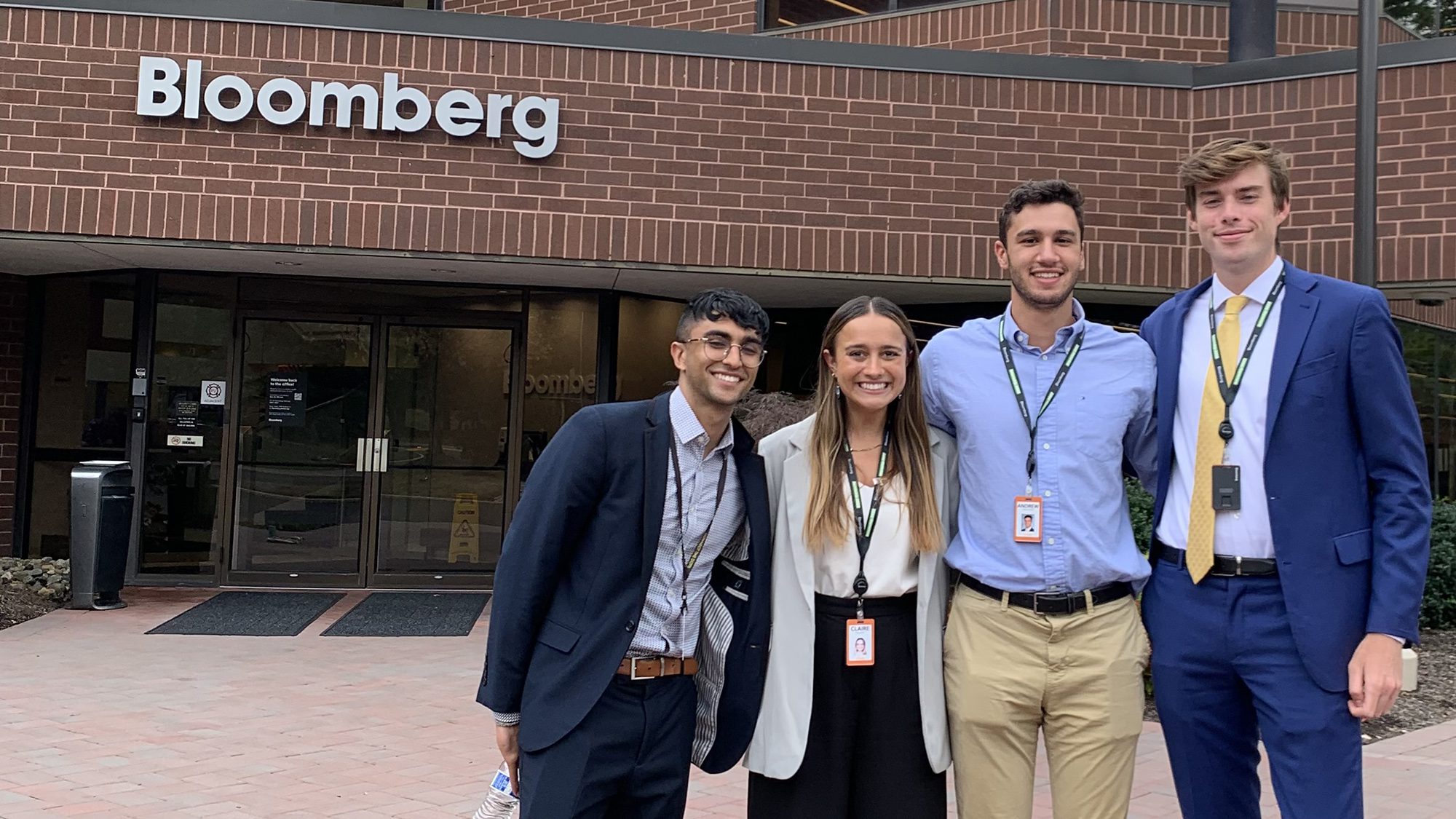Senior finds future in data analytics

Claire Gillaspy ’23 explored a lot of majors before deciding on applied mathematics.
“I wasn’t really sure what I wanted to do,” she said. “I just kept taking math courses because I liked them, but I had no idea what a career in math looks like.”
Gillaspy turned to her mother, a former career counselor at Washington University in St. Louis, Missouri, for advice. What she said would lead to an undergraduate research project, a minor, a summer internship and, ultimately, a job offer.
“She said, ‘If you like data, the thing to do right now is data analytics,’” Gillaspy said.
The field of data analytics was becoming ubiquitous, as faculty members like Kevin Hutson, professor of mathematics and chair of Furman’s data analytics interdisciplinary minor program, had long recognized.
“Every company now generates data,” said Hutson. “Somebody has to be on staff to do something with that data. It’s an in-demand field, and it’s hard to find enough people to fill the demand.”
Gillaspy got her first taste of data analytics in an undergraduate research project the summer after her sophomore year. Taking raw data from the English Premier League, she and her colleagues used a mathematical model to rate and rank soccer players’ performance based on offense, defense and ball control.
“I really loved it,” she said. “The whole idea of telling stories with numbers. We have information collected on everything these days, and it’s often in a pretty unusable form of just raw, ugly data. At its core, data analysis is using modeling or computer science techniques to extract meaning out of that data.”
Gillaspy decided to pursue data analytics, which Furman began offering as a minor in August 2021. She eventually discovered the Furman Metropolitan Fellowship, an alumni-led grant program that provides mentorship and financial assistance to students who commit to interning in the New York metropolitan area for a summer.
“It’s an incredible program,” Gillaspy said. “I’d been to New York a couple of times as a teenager, but I didn’t think of it as a plausible place to end up – a little southern girl from Conway, Arkansas, in the big city.”
During interviews, the Metropolitan Fellowship board members made a big impression on her. “I was thinking, ‘Even if I don’t get this, I want to use all of these guys’ knowledge,’” she said.
The impression was mutual, and she landed a fellowship. The next step was applying for internships – particularly challenging because Gillaspy was spending the spring semester studying in Europe. Luckily, the board members had her back.
“There was so much support from Day One,” she said, including help with revising her resume, researching companies and preparing for interviews. “They knew what the people in New York were looking for. They’re super plugged-in to that world.”
Their network reached as far as Princeton, New Jersey, putting in a good word for Gillaspy with the intern recruiter at Bloomberg’s data headquarters.
At Bloomberg, Gillaspy found herself suddenly immersed in an unfamiliar field. “I’ve never taken a finance course in my life,” she said – yet for 10 weeks this summer, she and the three other interns on Bloomberg’s Equities Corporate Actions Team lived and breathed financial data, taking on projects to enhance workflow and automate processes for uploading information to the company’s terminals.
At the end of the summer, Gillaspy had found her calling – and Bloomberg had found a new employee.
“A few weeks after the internship, I got a call with the return offer, which was incredible,” said Gillaspy, who will begin work at Bloomberg as a global data analyst this September. Her time at Furman has given her a distinctive set of tools to apply to her work, she said.
“A lot of the coding and hard skills that I used in the job, I hadn’t learned in any classes,” she said. “But what helped me thrive is this computational mindset, saying, ‘I have a human-based problem; how do I make a computer fix that?’ That kind of thinking and problem-solving skill happens in small, discussion-based liberal arts and sciences classrooms. It’s intangible, but it contributed to my success more than learning any scripts or programming.”